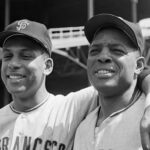Talking College Football With Coach Jack Lengyel
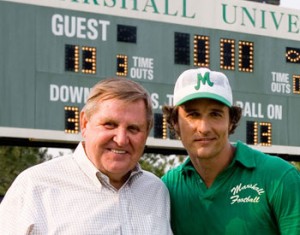
Jack Lengyel, who served as the head coach at Marshall University from 1971-1974, was played in the film We Are Marshall by Matthew McConaughey.
As we prepare for the much anticipated start of the 2009 college football season, Sports Then and Now will spend this week getting ready for the college football season with previews of some of the top teams and conferences in the country as well as special features on greats from the past.
We kickoff coverage with an interview with a former college football coach whose tenure as head coach at Marshall University was chronicled in the 2006 movie We Are Marshall. The movie starred Matthew McConaughey and brought renewed attention to a small town that dealt with a big tragedy in 1970.
Though Jack Lengyel is now most associated with his tenure as the coach who kept alive the football program at Marshall following the death of 75 players, coaches, staff and boosters in a plane crash on November 14, 1970, his career in college athletics actually spanned six decades.
Lengyel began his coaching career as an assistant coach at his alma mater, the University of Akron, in 1959 and served as an assistant at Heidelberg College and Cornell University before becoming the head coach at the College of Wooster in 1966.
“I was a firm, disciplined coach,” Lengyel said when asked to describe his coaching style. “I was demanding, but fair.
“To me, it was all about recruiting quality character people, both as players and as members of your staff. I firmly believed in the total person concept.”
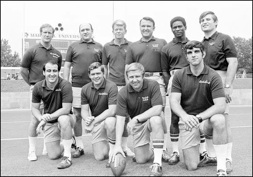
Lengyel and his staff basically had to start from scratch following the plane crash that killed most of the Marshall football team.
Lengyel took a team that had been 0-9 at Wooster before his arrival and turned them into a winning program.
When he took over as head coach at Marshall University following the plane crash only months earlier, Lengyel inherited a program that was questioning its existence and struggling not to be an embarrassment to a very proud and shaken community.
“When we got there we only had a month to get ready for spring practice,” Lengyel said. “We pretty much just had the returning freshmen and recruited whoever we could find.”
Lengyel had run a flip-flop offense at Wooster, but knew that wouldn’t work at Marshall because of the need for experienced linemen.
“We needed an offense that would work for the players we had and give us a chance to win,” Lengyel said.
One of the more interesting moments of the movie is a scene where Lengyel and his assistant, Red Dawson travel to Morgantown to “ask” West Virginia head coach Bobby Bowden if they can study the Houston Veer offense, which was run by Bowden’s Mountaineers.
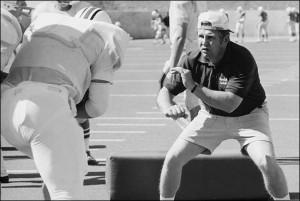
Lengyel often had to step in during drills because of a lack of players.
While Lengyel said the fundamentals of that story are true, the reality is that they talked to Bowden and his staff in advance and the entire Marshall coaching staff actually spent three days during spring practice watching practice and films in Morgantown.
“Frank Cignetti (who spent four seasons as head coach of the Mountaineers after Bowden left in 1976) taught us the offense in three days,” Lengyel said. “It gave us some options and some hope.”
Using their new offense was sometimes a challenge, as the team didn’t have enough players during spring practice to play all the positions.
“I played defensive end, we had coaches playing the defensive line, whatever it took for us to teach the team the new offense,” Lengyel recalled.
The big test occurred at the end of spring practice when Marshall hosted what was then an annual tradition of the alumni facing the current varsity team.
“There was a lot of pressure on us as the community wanted to see if we were going to be an embarrassment.
“We won 26-0 and it gave the community hope,” Lengyel said.
It was that same community that welcomed with open arms the filming of the movie We Are Marshall.
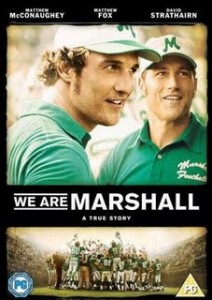
The 2006 movie We Are Marshall depicted the events following the 1970 plane crash and decision to keep playing football at Marshall.
When asked if the movie was an accurate depiction of the events from the early 1970s, Lengyel gave an honest, yet somewhat diplomatic answer.
“It is as accurate as most Hollywood movies,” he said. “I struggled at first with things like composite characters, but overall it did a tremendous job of telling the story 37 years later.”
In describing his depiction by Matthew McConaughey, Lengyel jokingly said, “My sideburns weren’t that long, I didn’t have a constant five o’clock shadow and I didn’t dress like Bozo the Clown.
“But seriously, he [McConaughey] did a tremendous job communicating the story. He spent a lot of time in the town making sure that he got a sense of the community and he really did a great job.”
Overall, Lengyel, said he was very pleased with the way the studio handled the sensitivity of the movie and made the town feel like part of the production.
“We didn’t want a Beverly Hillbillies movie that would desecrate the memory of the 75 people that perished in the crash,” Lengyel said. “Huntington is a unique place. The town and gown relationship is like a fist and I think they did a great job of capturing that.”
Lengyel also said that over time the Warner Brothers crew became part of the community.
The campus and community scenes of We Are Marshall were shot in Huntington.
“The first day there was one guy wearing a green Marshall hat. By the end everyone was wearing Marshall green.”
The community also helped create the atmosphere for the movie as more than 2,000 people showed up when a call was made for stand-ins. When they needed period cars they were inundated with people willing to help for free.
Conversely, Lengyel said that when the shooting shifted to Atlanta, they had to spend a small fortune on period cars.
After shooting campus scenes in Huntington, the crew moved to Atlanta where the football and crash scenes were shot.
The movie was premiered in Huntington at a special screening for families of the victims before a full premier for the community.
“Warner Brothers was very sensitive of the situation and really wanted to do it right. I think everyone appreciated how they handled the entire production,” Lengyel said.
Lengyel left Marshall after the 1974 season and never coached again. However, after a short stretch in private business, he returned to spend the next three decades in college administration.
He served as associate athletic director at the University of Louisville and the University of Missouri. He then was the athletic director at Fresno State for two years and then briefly returned to the University of Missouri as athletic director.
In 1988 he became the director of athletics at the U.S. Naval Academy and served in that capacity until 2001. Though technically retired, Lengyel has served stints as the interim director of athletics at Temple University, Eastern Kentucky University and the University of Colorado.
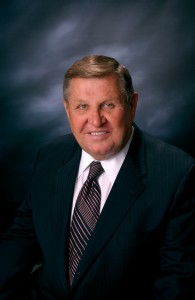
After leaving Marshall in 1974, Lengyel spent nearly three decades as a college athletic director. He is now the vice president for business development for XOS Technologies.
He also has spent significant time stoking a passion that has been with him since he started coaching, technology. Lengyel is currently the vice president for business development for XOS Technologies, which is the leading provider of video technology for college and professional coaches.
“Technology has exploded,” Lengyel said. “You can now get instant information on opponents or on recruits where once it would have taken you days or weeks to get the information and then even longer to catalog everything.”
While an assistant coach at Cornell in the 1960s, Lengyel was first exposed to using computers for game planning.
“The first computer system we used was the size of a building,” Lengyel recalled, “and had the power of today’s cell phone.
“Now you have everything you need virtually at the push of a button. The question becomes how much information can you really use.”
At 74-years old and now 50 years removed from his first college coaching job, Jack Lengyel has seen a lot of changes in college athletics, but he is still active, engaged and ready to lend a hand wherever one might be needed.





